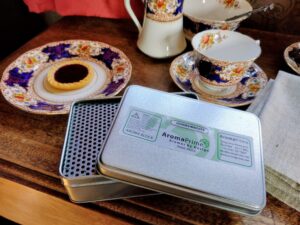Denbighshire bird colony continues seasonal support for Little Terns

A Famous Denbighshire bird colony has celebrated its 20th anniversary with another successful season for protecting the rare summer visitors.
This year marks the 20th year Denbighshire Countryside Service has managed the Little Tern colony at Gronant Dunes.
The site is the largest breeding colony found in Wales. It is known internationally as it contributes to over 10 percent of the entire UK breeding population as well as supplementing other colonies.
Little Terns spend the winter in Africa, they arrived at the dunes in May to breed on the shingled beach in a protected site prepared in April by Countryside staff and volunteers. They start flying back south at the end of August.
Their nests consist of just a scrape in the sand, where pairs will take turns in incubating one to three eggs. Little terns feed exclusively on a diet of sand eels, which they fish for out at sea.
Eleven electric fenced pens and a section of strap fencing along the landward side of the colony were constructed to protect breeding Little Terns.
A boundary fence was implemented to prevent the public from accessing the colony. However, visitors could drop a visitor centre and bird hide to find about and also view the birds from afar.
Wardens on site helped look-out for aerial predators – mainly kestrels and peregrine falcons, as well as engaging with the many visitors who come to Gronant each year
This season saw 166 breeding pairs recorded and a total of 158 fledglings, a slight increase on the number of young seen during the 2023 season.
Wardens also worked with the British Trust for Ornithology to ring a number of the birds to keep track of them in the future.
The Little Terns visitor centre hosted a total of 1,140 visitors to the designated viewing points and 115 people engaged in the project via trips and visits to the site. Volunteers from the North Wales Little Tern Group, Denbighshire Countryside Services and Merseyside Ringing Group (logged 867 volunteering hours throughout the season.
Countryside staff operate a ‘no-trace’ policy at the colony site and all equipment is taken off and stored until next spring arrives.
Garry Davies, Countryside Officer and County Allotments Manager, said: “This project is so much more than the protection of a very rare seabird. Volunteer participation at the colony is higher than any other activity offered by Countryside Services, and visiting the colony has become inclusive with a conscious effort to include schools and residents from the more disadvantaged areas in Denbighshire. It also contributes to the Council’s tourism offer with visits from birdwatchers from across the UK.
“This season has been extra special in that avocets successfully bred at Gronant for the very first time. A key species in the story of conversation, the avocet represents an amazing recovery of a bird once extinct in the UK. It symbolises the bird protection movement throughout the UK more than any other species.
“Under the watchful eye of Denbighshire Council Staff and volunteers two avocet chicks successfully fledged on Denbighshire’s Coastline for the first time ever and everybody involved should feel justifiably proud for their efforts.”
Cllr Barry Mellor, Lead Member for Environment and Transport and Biodiversity Champion said: “This is fantastic news to hear the number of fledglings has risen at this important colony in Denbighshire. All credit must go to the hard work of our countryside teams and the fantastic volunteers who do so much to protect and support this important colony based in Denbighshire.”
If you would like any more information on Gronant’s little tern colony, or to volunteer, please contact claudia.smith@denbighshire.gov.uk





